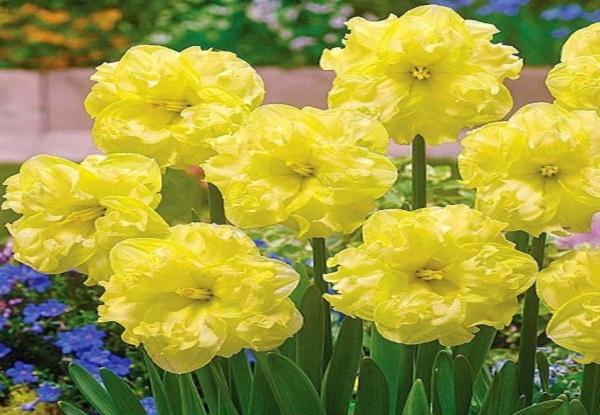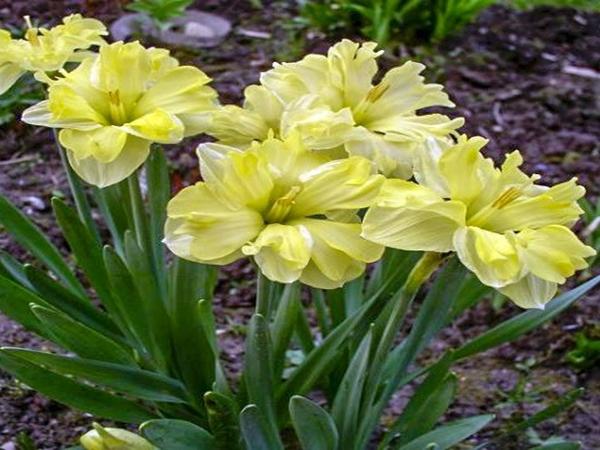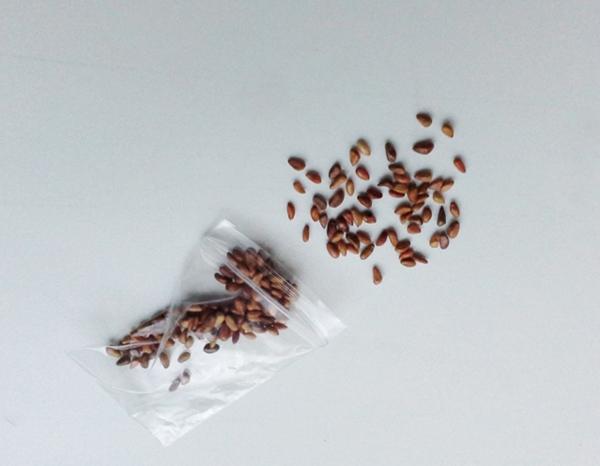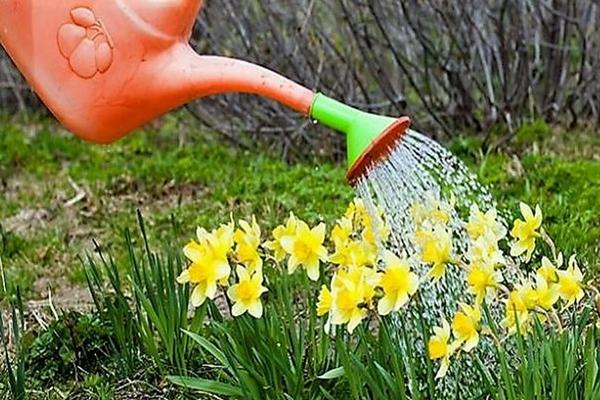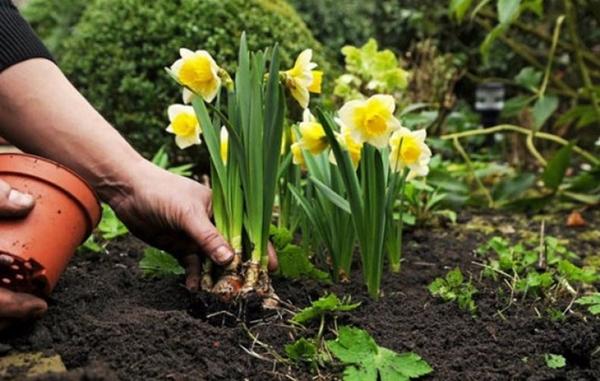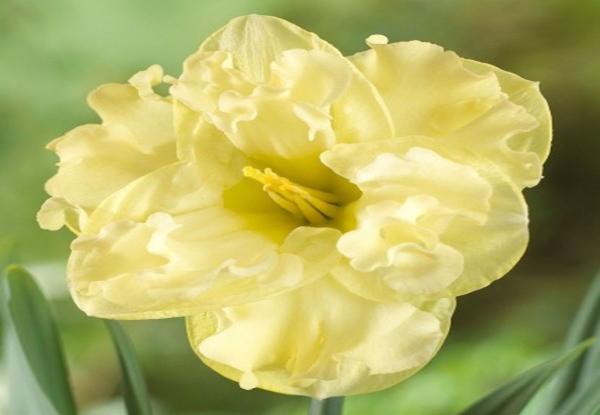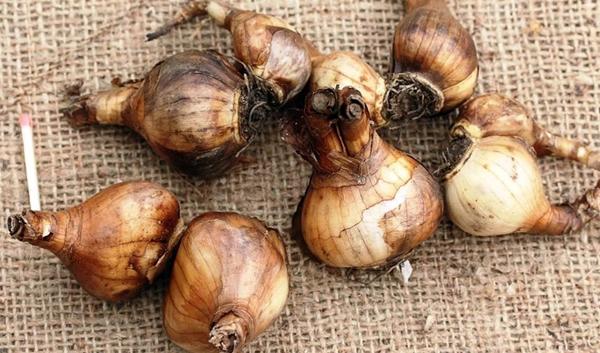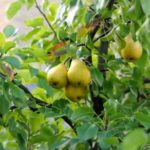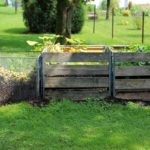For many people, spring begins only when primroses appear in the flower beds. Daffodils with the poetic name Sunny Side Up are one of them. These plants have a beautiful appearance, looking like little fluffy suns. They will decorate your garden plot in early spring and will not wither for several months. Caring for primroses is simple and accessible even to novice gardeners.
- Description and characteristics of the Sunny Side Up daffodil
- Advantages and disadvantages
- Specifics of cultivation
- Landing dates
- Selection and preparation of a landing site
- Preparation of planting material
- Planting process
- Tips for caring for flowers
- Watering and fertilizers
- Mulching and loosening
- Trimming
- Preparing for winter
- Ways to combat diseases and pests
- Flower propagation
- Using Sunny Side Up in landscape design
Description and characteristics of the Sunny Side Up daffodil
Narcissus Sunny Side Up (Latin name Narcissus Sunny Side Up) is a perennial, bulbous, herbaceous plant. The variety is considered a large-crowned orchid. Sunny Side Up flowers resemble exotic orchids. The primrose has a rather unusual appearance:
- Single flowers of lemon-yellow color with a diameter of approximately 9-10 centimeters. The crown is large, corrugated, dissected, and has a bright yellow wide border. The base consists of several connected segments.
- Leaf blades are basal, elongated in shape. Usually their number is 3-4 pieces.
- The root system is represented by a dense bulb.
- The height of the erect, strong peduncle is 40-45 centimeters. There is a flower on top of it.
- After flowering is completed, a fruit is formed - a seed capsule.
Leaves creep out of the soil immediately after the snow melts. And after a while, stems and flowers appear.
Advantages and disadvantages
The downside of daffodils is that after flowering the leaves cannot be torn off. They wither on their own for a long time and spoil the appearance of flower beds.
Specifics of cultivation
Sunny Side Up primroses are grown in the same way as regular daffodils.
Landing dates
In central Russia, the best time for planting primroses is considered to be the period from the third decade of August to mid-September. These terms are good because the planting material takes root before the onset of frost. This means that the plant will withstand the winter better and bloom quickly in the spring.
Selection and preparation of a landing site
Primroses Sunny Side Up prefer sunny areas or places where there is slight partial shade.
First, the soil in the future flower garden is cleared of weeds, dug up, and fertilized. Dig holes 15-20 centimeters deep, keeping a distance of 10-15 centimeters between them. If the soil is heavy, then the depth is slightly reduced.
Preparation of planting material
If a gardener has flower beds with Sunny Side Up daffodils, then first the bulbs are taken out of the ground and divided. Dug or purchased planting material is soaked in a strong solution of potassium permanganate. This procedure is a means of prevention against all kinds of rot and fusarium.
Planting process
A handful of wood ash is poured into each hole. The prepared bulbs are planted one at a time, covered with soil, which is lightly compacted.
Tips for caring for flowers
Narcissus Sunny Side Up is an unpretentious plant. In order for it to feel good, the gardener needs to carry out standard care operations.
Watering and fertilizers
After planting, plants need constant moisture as the soil dries out. This is especially true when leaves and buds begin to appear. Abundant watering is required at the time when Sunny Side Up is gaining buds. If there is not enough liquid, the flowers will begin to dry out and fall off.
But, at the same time, it is worth making sure that there is no excess liquid, especially where the soil contains a lot of clay inclusions. After flowering is completed, irrigation is continued until the leaf blades completely wither.
It is important to constantly feed daffodils:
| Feeding no. | Plant development phase | Fertilizer composition |
| 1. | Mass shoots | Nitrogen containing |
| 2. | The appearance of buds | More potassium |
| 3. | Abundant flowering | Complex fertilizer |
| 4. | After flowering is complete | Containing phosphorus |
Mulching and loosening
Sunny Side Up daffodils require constant hand weeding combined with loosening. If you do not carry out these procedures, the flowering will not last long. There will not be enough nutrients to form healthy bulbs.
To ensure that the soil remains moist for a long time and there are as few weeds as possible, flower beds can be covered with mulch in the form of rotted sawdust or crushed tree bark. In addition, if you combine the colors correctly, the flowerbed will look attractive.
Trimming
Plants are pruned periodically throughout the summer season. This is necessary to ensure that the appearance of the flowerbed is attractive and that nutrients go to healthy parts of the plant. The following components are removed:
- fading flowers - until seeds begin to form;
- with slight damage by rot and other diseases;
- completely dried leaf blades. Previously, it is not worth removing them, because all the nutrients from the leaves go to the bulbs.
If the gardener did not have time to remove part of the primrose at the very beginning of the disease, then the entire plant will have to be removed.
Preparing for winter
Sunny Side Up are considered winter-hardy and do not need protection from the cold.
Ways to combat diseases and pests
To prevent diseases and at their first signs, primroses are sprayed with copper-containing fungicides.
Flower propagation
Seeds are not used to propagate Sunny Side Up daffodils. Only bulbs are used for this purpose.
Using Sunny Side Up in landscape design
Sunny Side Up should not be planted in masses. When they bloom they look beautiful. But after this process is completed, their leaves do not die off for a long time and have a sloppy appearance. They spoil the entire large-scale composition.
It is better to plant daffodils in groups of 6-10 pieces and surround them with perennial herbs. After the primroses finish flowering, the greenery will cover the withering leaf blades of Sunny Side Up.

